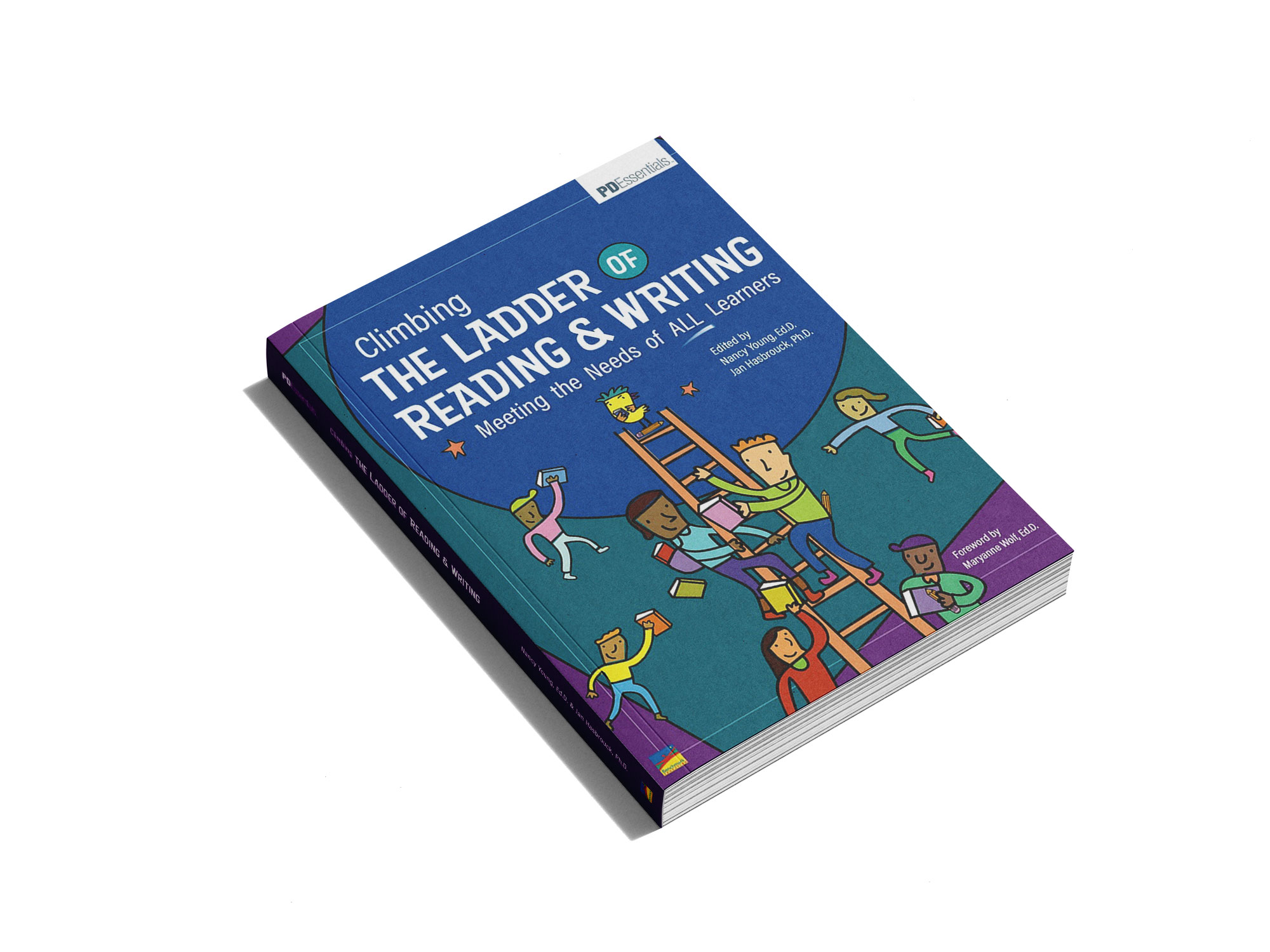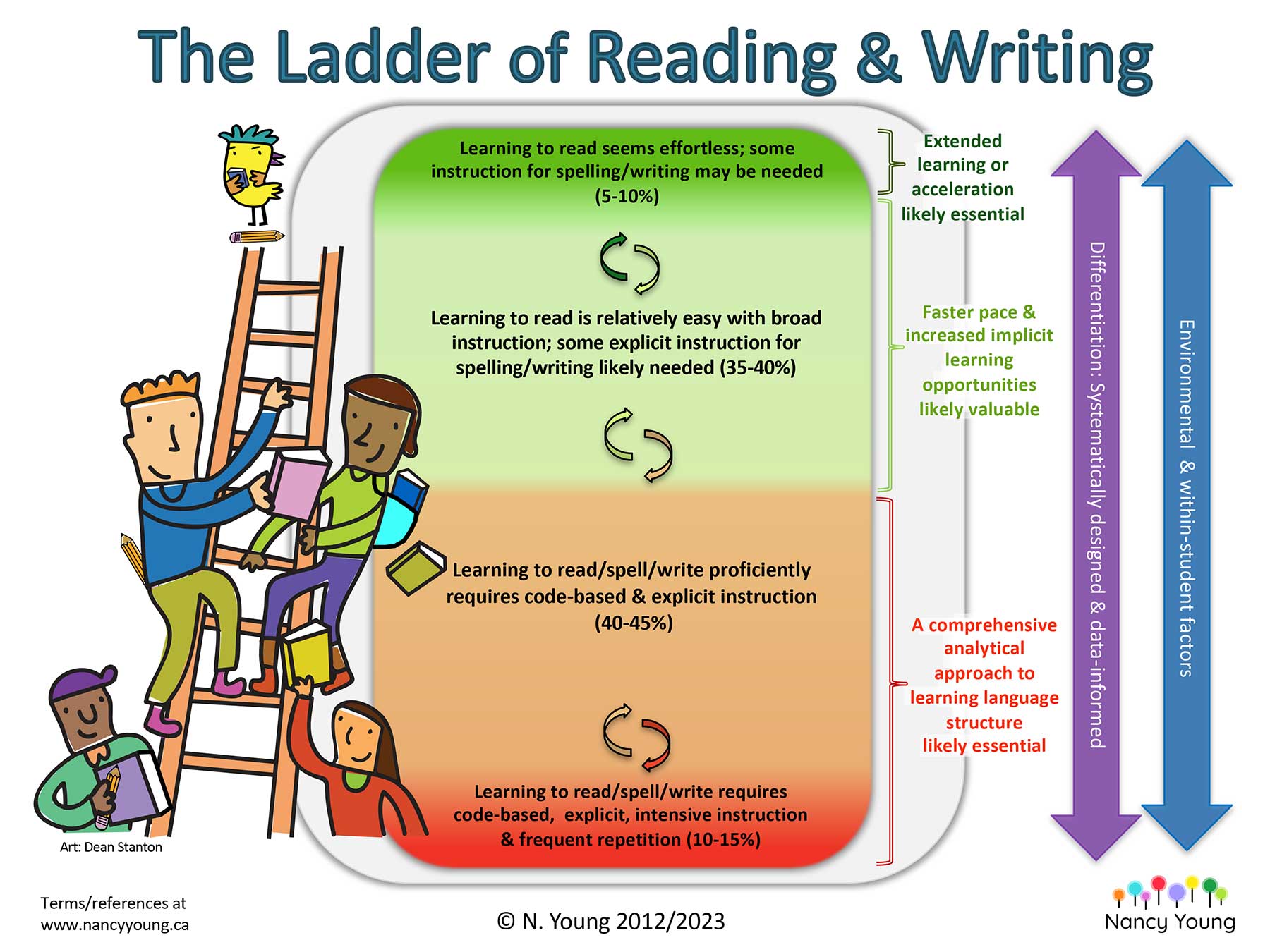Educational Consultant –
Specializing in Reading & Writing
Providing professional development for educators
“EVERY STUDENT DESERVES CLASSROOM INSTRUCTION AND SUPPORT THAT IS DIFFERENTIATED FOR THEIR INTELLECTUAL ABILITY AND ACADEMIC READINESS. ALL INSTRUCTION SHOULD RECOGNIZE INDIVIDUAL STRENGTHS, INTERESTS, AND VARYING NEEDS, AND BE PROVIDED IN WAYS THAT ARE BOTH EFFECTIVE AND FUN!”
“EVERY STUDENT DESERVES CLASSROOM INSTRUCTION AND SUPPORT THAT IS DIFFERENTIATED FOR THEIR INTELLECTUAL ABILITY AND ACADEMIC READINESS. ALL INSTRUCTION SHOULD RECOGNIZE INDIVIDUAL STRENGTHS, INTERESTS, AND VARYING NEEDS, AND BE PROVIDED IN WAYS THAT ARE BOTH EFFECTIVE AND FUN!”

The eagerly awaited book
co-edited by Nancy Young, Ed. D.
and Jan Hasbrouck, Ph.D.
Climbing THE LADDER OF READING & WRITING
Meeting the Needs of ALL Learners
The Infographic:
The Ladder of Reading & Writing
Sign Up for my newsletter
* We do not sell or distribute your personal information.

